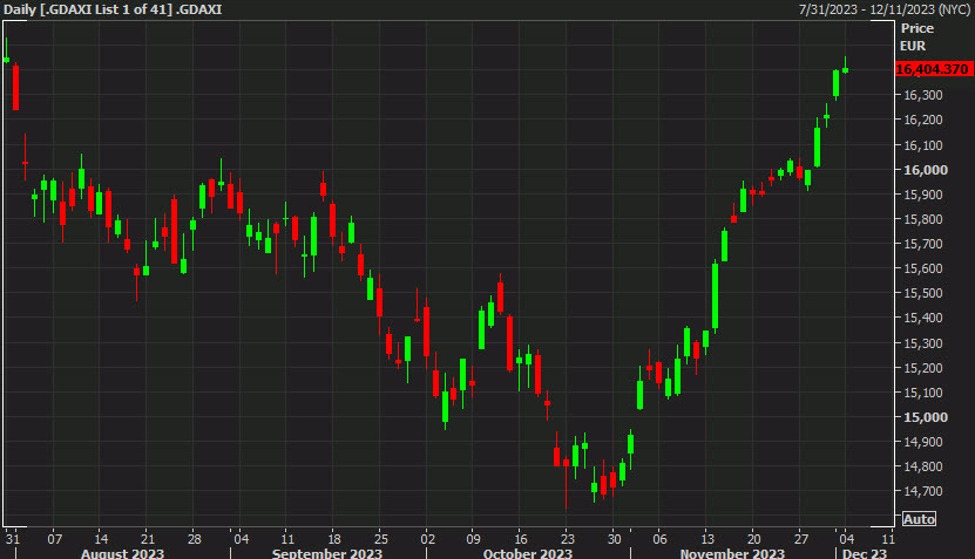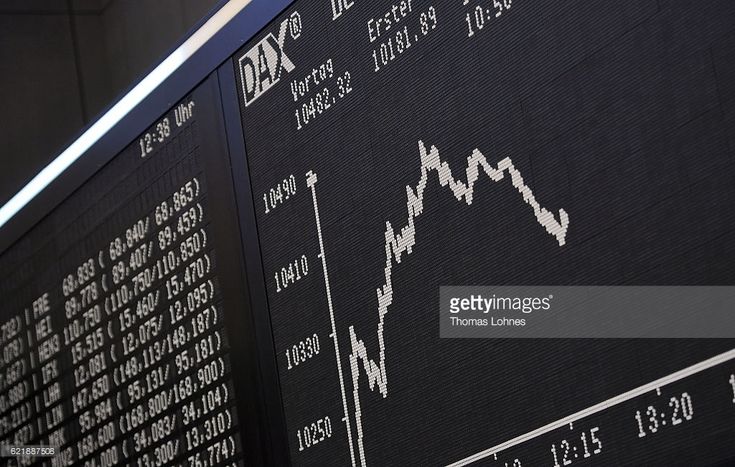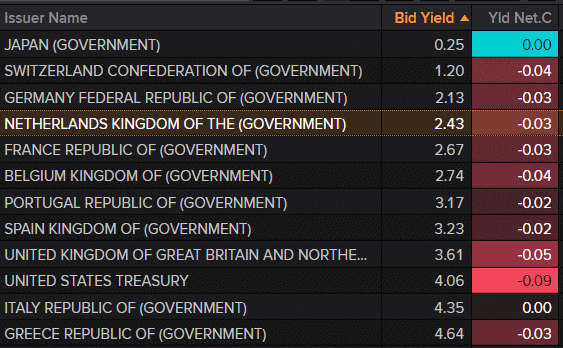Market Close: Frankfurt DAX Experiences Losses Below 24,000

Table of Contents
Key Factors Contributing to DAX Losses
The DAX's fall below 24,000 is attributable to a confluence of factors impacting investor confidence and the overall economic landscape. Several key market factors are at play:
-
Rising Interest Rates: The European Central Bank's (ECB) efforts to combat inflation through interest rate hikes have dampened investor enthusiasm. Higher borrowing costs increase the cost of capital for businesses, potentially hindering growth and reducing corporate profitability. This impacts the valuation of many DAX companies, contributing to the overall decline.
-
Persistent Inflation: Stubbornly high inflation continues to erode consumer purchasing power and squeeze profit margins for businesses. This inflationary pressure is a significant concern for investors, leading to a cautious approach and potentially impacting future earnings forecasts for many DAX-listed companies.
-
Geopolitical Risks: The ongoing war in Ukraine continues to cast a long shadow over the global economy, creating significant geopolitical uncertainty. Energy security concerns, supply chain disruptions, and the broader impact on the European economy are all contributing to market volatility and negatively impacting investor confidence in the DAX.
-
Rising Energy Prices: The surge in energy prices, particularly natural gas, poses a significant challenge for German businesses, many of which are energy-intensive. This increased cost burden reduces profitability and impacts overall economic growth, contributing to the negative sentiment surrounding the DAX index.
-
Weak Economic Indicators: Recent economic data for Germany has been less than robust, signaling potential challenges for the country's economic growth. Weak indicators fuel concerns about corporate earnings and overall market prospects, further depressing the DAX.
-
Sector-Specific Impacts: The decline hasn't affected all sectors equally. Energy and materials companies, particularly vulnerable to inflation and geopolitical events, have experienced disproportionately large losses. Conversely, defensive sectors might show some resilience.
DAX Performance Compared to Other European Indices
The Frankfurt DAX's underperformance isn't occurring in isolation. However, the extent of the decline warrants a closer look at its performance compared to other major European indices.
-
Comparative Chart: [Insert a comparative chart illustrating the performance of the DAX, FTSE 100, and CAC 40 over a relevant period. Clearly label the axes and data sources.]
-
Divergent Performance: While other major European indices like the FTSE 100 and CAC 40 have also seen declines, the magnitude of the DAX's drop below 24,000 is noteworthy. This divergence may reflect the unique vulnerabilities of the German economy, such as its heavy reliance on energy imports from Russia and its exposure to global supply chain disruptions.
-
Economic Strength Differences: The relative performance of these indices often reflects the underlying economic strength of the respective countries. A more detailed analysis would consider factors like unemployment rates, GDP growth, and consumer confidence indicators in each country to better understand the variations in market performance.
Investor Sentiment and Future Outlook for the Frankfurt DAX
Investor sentiment surrounding the Frankfurt DAX is currently characterized by caution and uncertainty. The drop below 24,000 has heightened anxieties about further declines.
-
Expert Opinions: Many market analysts express concern about the short-term outlook for the DAX, citing persistent inflation and geopolitical risks as major headwinds. However, some predict a potential recovery based on future easing of inflation or positive economic developments. [Cite specific expert opinions and sources here.]
-
Market Catalysts: Positive catalysts for a potential DAX recovery could include a significant easing of inflation, a de-escalation of geopolitical tensions, or unexpectedly strong economic data. Negative catalysts, on the other hand, could include further interest rate hikes, a worsening energy crisis, or a deepening recession in Europe.
-
Trading Strategies: The current market conditions suggest a need for cautious and diversified investment strategies. Investors should consider hedging against potential further declines while also identifying opportunities in resilient sectors.
Conclusion
The Frankfurt DAX's close below 24,000 reflects a concerning confluence of factors, including rising interest rates, persistent inflation, geopolitical risks, and the impact of high energy prices on the German economy. While other European indices also experienced declines, the DAX's drop highlights specific vulnerabilities within the German economy. Investor sentiment is currently cautious, though the future outlook remains uncertain, dependent on evolving economic and geopolitical conditions. Careful portfolio management and diversified investment strategies are advised.
Call to Action: Stay informed about the Frankfurt DAX and its daily performance. Follow our website for further updates and in-depth analysis of the German stock market. Learn more about investing in the DAX index and managing your portfolio during market volatility. Understanding the dynamics of the Frankfurt DAX is crucial for navigating the complexities of the German and broader European markets.

Featured Posts
-
 Horoscopo Semanal 1 Al 7 De Abril 2025 Aries Tauro Geminis Y Mas
May 24, 2025
Horoscopo Semanal 1 Al 7 De Abril 2025 Aries Tauro Geminis Y Mas
May 24, 2025 -
 How Joe Jonas Defused A Couples Fight About Him
May 24, 2025
How Joe Jonas Defused A Couples Fight About Him
May 24, 2025 -
 Record Highs On The Horizon Frankfurt Equities And The Daxs Continued Ascent
May 24, 2025
Record Highs On The Horizon Frankfurt Equities And The Daxs Continued Ascent
May 24, 2025 -
 Hromadne Prepustanie V Nemecku Ktore Spolocnosti Rusia Pracovne Miesta
May 24, 2025
Hromadne Prepustanie V Nemecku Ktore Spolocnosti Rusia Pracovne Miesta
May 24, 2025 -
 Positief Beurzenklimaat Na Trumps Uitstel Aex Winnaars En Verliezers
May 24, 2025
Positief Beurzenklimaat Na Trumps Uitstel Aex Winnaars En Verliezers
May 24, 2025
